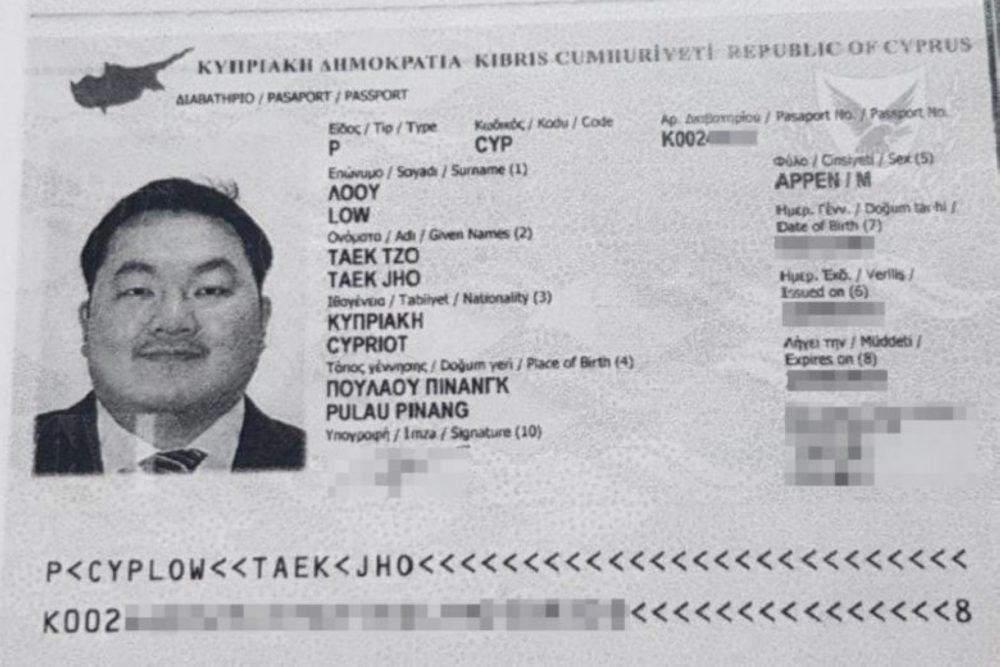Cyprus to revoke passports ‘mistakenly’ granted to investors, including Jho Low

Cyprus’ president has pledged to revoke any of his island republic’s passports found to have been “mistakenly” granted to wealthy overseas investors under a controversial cash-for-citizenship programme.
(The Star) – After it was reported that fugitive financier Low Taek Jho, or Jho Low, got a passport of the island state back in 2015 as international investigators were closing him on him, Nicos Anastasiades said errors could have been made in granting such so-called “golden passports”.
He said this was under an earlier, laxer version of the programme.
“We have to admit mistakes over some “blatant” instances where passports shouldn’t have been issued,” Anastasiades was quoted as saying by the Associated Press (AP).
“Citizenship will be taken away from anyone who received it in violation of the strict criteria that are required, full stop. And as soon as possible,” said Anastasiades.
It was reported by Cypriot daily Politis that Low had received the support of Archbishop Chrysostomos II of Cyprus in his attempt to obtain a passport and that he was granted the passport despite the fact that a background check on him had raised several red flags.
Malaysiakini reported Cypriot Interior Minister Constantinos Petrides as saying that the government would look into Politis’ report and other similar cases in which individuals abused the system that allowed them to get European Union citizenship.
Petrides’ predecessor Socrates Hasicos called for the passport to be revoked, if it was proven that Low had committed any crime.
Hasicos said in a Facebook post that when the approval was given during his time, the Cypriot police had informed him that Low had no criminal record.
AP reported that nearly 4,000 passports have been issued to investors since the programme was launched following a 2013 financial crisis.
The scheme, which requires investments of at least €2mil (RM9.24mil) in real estate or in a Cyprus-based business, has so far generated some €7bil (RM32.35bil).
Anastasiades said the money had helped the country rebound strongly from near-bankruptcy.
The government launched an investigation last month into all investors who received passports before eligibility rules and vetting procedures were first tightened in 2018.
Even more stringent vetting was enacted earlier this year. It included a requirement that investors already hold a visa permitting them to visit the EU.
That came after the EU issued a report in January warning Cyprus and other countries to beef up vetting procedures amid concerns that third country nationals were exploiting the programme to launder money and flout tax laws.

